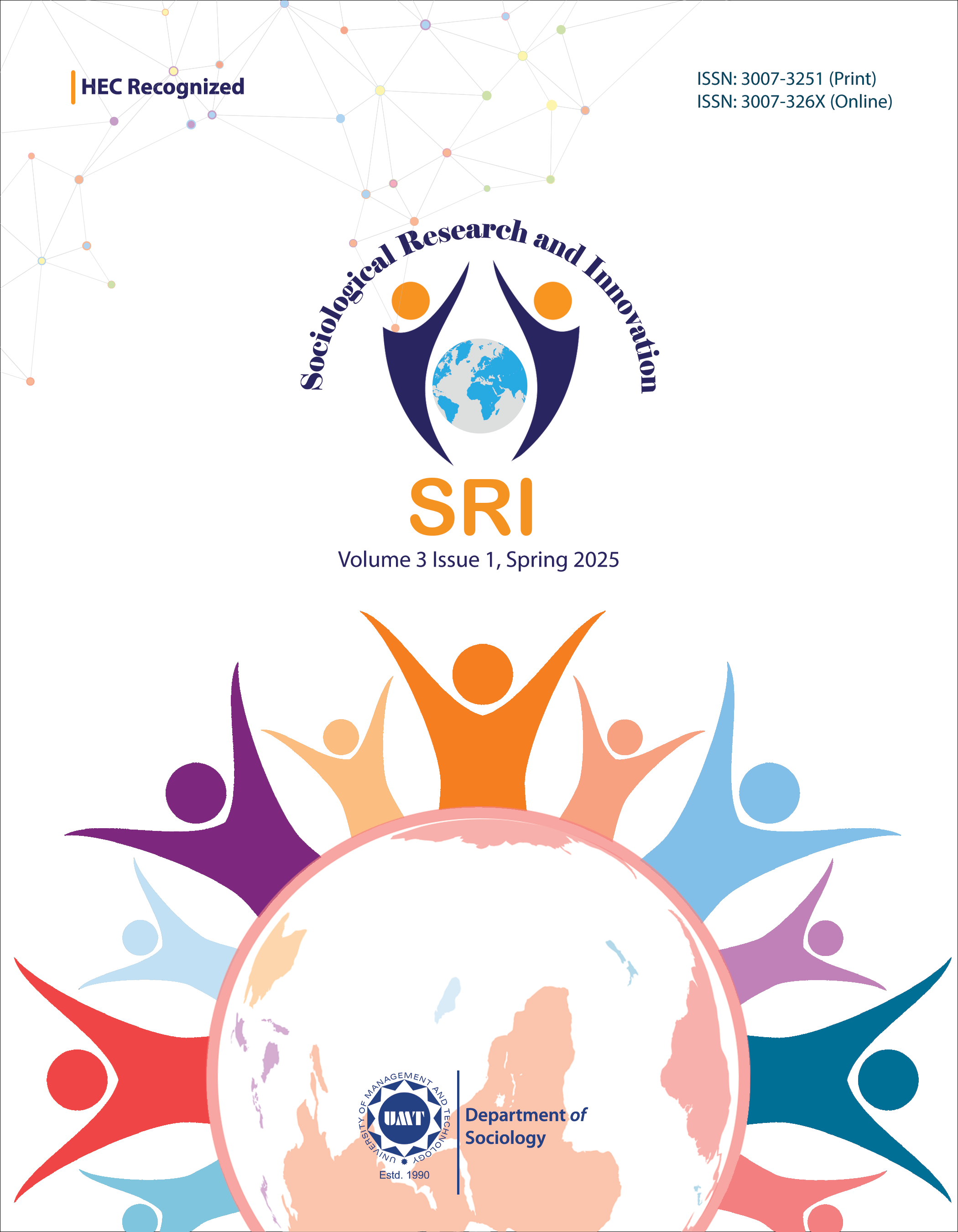Voices of Harmony: Islamic Communication and Decolonization
Abstract
 Abstract Views: 0
Abstract Views: 0
This paper explores the relationship between Islamic communicative ethics and decolonial theory, with a view of establishing a paradigm shift in global communication. While Eurocentric strategies focus on persuasion, efficiency, and control, the Islamic perspective values moral accountability, compassion, justice, and mutual recognition as fundamentals. This research, under the influence of the ideas of Allama Iqbal, Maulana Maududi, and Maulana Fazl ur Rahman, situates Islamic communication as a part of an integrated spiritual and ethical process that is within the scope of Islamic epistemology. The study further integrates the work of the decolonial theorists Aníbal Quijano, Walter Mignolo, and Ngũgĩ wa Thiong'o’. Through case studies, including Muslims of the World, A Common Word, and the documentary Salam Neighbor, the study traces how Islamic ethical principles are implemented in contemporary media and interfaith discourse. This research affirms Islamic communicative ethics as a decolonial alternative that reclaims narrative autonomy, and facilitates inclusive exchange among diverse groups. By presenting Islamic ethical discourse as a relevant response to global communicative incommodities, this work contributes to the field of decolonizing communication research.
Downloads
References
Asad, T. (2009). The idea of an anthropology of Islam. Qui Parle, 17(2), 1–30.
Alatas, S. H. (1977). The myth of the lazy native: A study of the image of the Malays, Filipinos and Javanese from the 16th to the 20th century and its function in the ideology of colonial capitalism. Frank Cass & Co. London.
Couldry, N., & Mejias, U. A. (2019). The costs of connection: How data is colonizing human life and appropriating it for capitalism. Stanford University Press.
Dabashi, H. (2008). Islamic liberation theology: Resisting the empire. Routledge.
Esposito, J. L., & Kalin, I. (Eds.). (2010). The 500 most influential Muslims 2010. The Royal Islamic Strategic Studies Centre.
Ernst, C. W. (2003). Following Muhammad: Rethinking Islam in the contemporary world. University of North Carolina Press.
Esposito, J. L. (2002). What everyone needs to know about Islam. Oxford University Press.
Esposito, J. L. (2005). Islam: The straight path (3rd ed.). Oxford University Press.
Grosfoguel, R. (2011). Decolonizing post-colonial studies and paradigms of political-economy: Transmodernity, decolonial thinking, and global coloniality. Transmodernity: Journal of Peripheral Cultural Production of the Luso-Hispanic World, 1(1), 1–38.
Hallaq, W. B. (2013). The impossible state: Islam, politics, and modernity's moral predicament. Columbia University Press.
Hirschkind, C. (2006). The ethical soundscape: Cassette sermons and Islamic counterpublics. Columbia University Press.
Hussain, M. M., & Howard, P. N. (2013). Democracy’s fourth wave? Digital media and the Arab Spring. Oxford University Press.
Iqbal, M. (2013). The reconstruction of religious thought in Islam. Stanford University Press.
Maududi, A. A. (1999). Towards understanding Islam. Islamic Foundation.
Mignolo, W. D. (2011). The darker side of western modernity: Global futures, decolonial options. Duke University Press.
Mignolo, W. D., & Walsh, C. E. (2018). On decoloniality: Concepts, analytics, praxis. Duke University Press.
Mignolo, W. D. (2009). Epistemic disobedience, independent thought and decolonial freedom. Theory, Culture & Society, 26(7–8), 159–181.
Moll, Y. (2020). The idea of Islamic media: The Qur’an and the decolonization of mass communication. International Journal of Middle East Studies, 52(4), 641–661.
Nasr, S. H. (1981). Knowledge and the sacred. State University of New York Press.
Quijano, A. (2000). Coloniality of power, Eurocentrism, and Latin America. Nepantla: Views from South, 1(3), 533–580.
Rahman, F. (1982). Islam and modernity: Transformation of an intellectual tradition. University of Chicago Press.
Sardar, Z. (1999). Islamic futures: The shape of ideas to come. Mansell Publishing.
Sardar, Z. (2014). Mecca: The sacred city. Bloomsbury Publishing.
Sayyid, S. (2014). Recalling the caliphate: Decolonisation and world order. Hurst & Company.
Temple, C., & Ingrasci, Z. (Directors). (2015). Salam neighbor [Documentary]. IMDb. https://www.imdb.com/title/tt3828488/
Wa Thiong’o, N. (1986). Decolonising the mind: The politics of language in African literature. James Currey.
Copyright (c) 2025 Afifa Shahid, Fouzia Sadaf, Faiqa Rashid

This work is licensed under a Creative Commons Attribution 4.0 International License.


